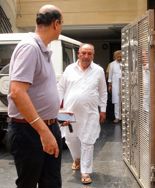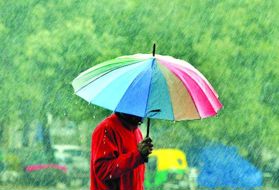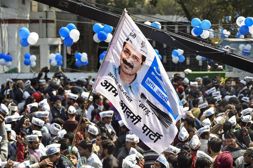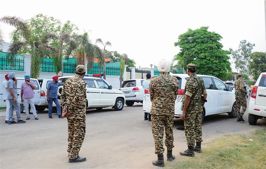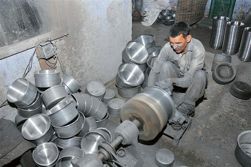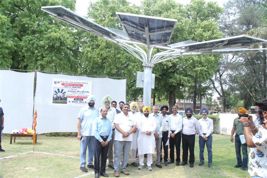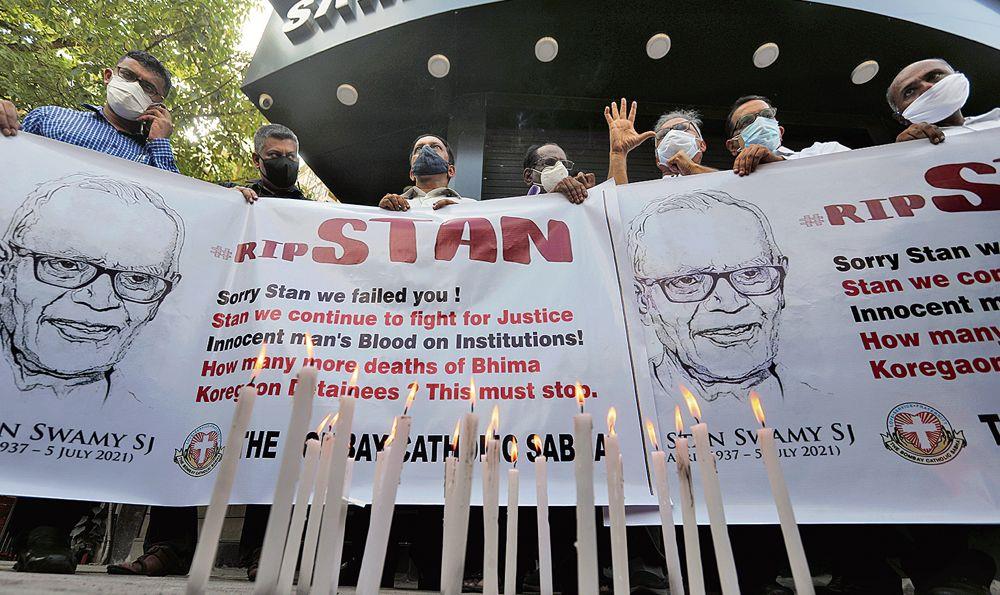
Tragic: Fr. Stan Swamy died awaiting justice. This should force courts to introspect. Reuters
Siddharth Lamba
Project Officer, Commonwealth Human Rights Initiative
HUMAN rights defender Fr. Stan Swamy (84) breathed his last on July 5 as an undertrial prisoner. He died awaiting the Bombay High Court’s decision on his bail plea filed more than a month ago.
Fr. Stan had sought medical bail after his arrest in October 2020 stating that he was suffering from a neuro-degenerative disease and other health complications. The National Investigation Agency (NIA) opposed Stan’s medical bail plea stating that there was no “conclusive proof” of his ill-health. Nothing more remains to be said about this baseless opposition as he died on ventilator support in a hospital fighting pulmonary infection, Parkinson’s disease and Covid-19 complications.
But what should really unsettle India’s judiciary is that an undertrial died while in court’s custody: an octogenarian rights activist suffering from Parkinson’s and Covid. Whether an 84-year-old internationally recognised human rights defender, unable to eat or walk without help, should have remained incarcerated in his last days is a question that will haunt the Indian judiciary. Whether anyone who is presumed innocent should die of illness in custody is a question that can perhaps redeem the judiciary, if it fixes accountability of those responsible for the tragedy on a case-to-case basis.
The National Crime Records Bureau (NCRB) report says that in 2019, 1,466 prisoners died of various ‘illness’ and 78 died due to ‘ageing’ in judicial custody; both are categorised as natural deaths. It is not just unfortunate but horrific to call a death ‘natural’ if the ailing person dies in custody — away from his/her close ones. The words of Fr. Stan, “Whatever happens to me, I would like to be with my own,” resonate.
Indeed, in Sri Rama Murthy vs State of Karnataka, the apex court had observed that prisoners do not have equal access to medical facilities as free citizens and their living conditions in prisons make them more prone to health hazards.
What incriminates the State and judiciary in custodial deaths is the crumbling medical infrastructure. According to the NCRB’s 2019 data, there is one medical professional for 243 prisoners in India. The overall medical staff vacancy in Indian prisons stands at a staggering 41%. A meagre Rs 5 per prisoner per day is spent on their medical needs. Despite several recommendations of jail reform committees and a plethora of court directions, these figures lay bare the murderous neglect of the State towards prisoners — a wide majority of whom are innocent in the eyes of the law.
Advocate Mihir Desai alleged medical negligence against the Taloja jail authorities for not providing adequate treatment to Fr. Stan on time. The death of this rights defender reflects Taloja Central Jail’s neglect of prisoners, especially during the pandemic, despite extensive media coverage of the issue. Family members and lawyers of other prisoners have alleged mistreatment and violation of rights at Taloja jail; these too have been widely reported. Pleading for interim bail, Fr. Stan had told the High Court on May 21, 2021: “Taloja jail brought me to a situation where I can neither write nor go for a walk by myself.”
In May this year, in the middle of the second wave of the pandemic, only three ayurvedic doctors were available for Taloja jail with an inmate population of more than 3,000 prisoners. This was in clear non-compliance of Justice (retd) Dr S Radhakrishnan Committee’s recommendations which required “a team of five medical experts…to visit jails once for two hours, every week.”
Currently, Taloja jail is holding 30% more prisoners than its designed capacity. Three of the 13 Covid-19 deaths across prisons of Maharashtra have taken place here. Indeed, the list of allegations against Taloja jail for serious violations of fundamental rights may be even longer than the charges against Fr. Stan and others in the Bhima Koregaon case.
The Supreme Court in ‘Re-Inhuman Conditions in 1,382 prisons case’ gave extensive directions to ensure humane living conditions in prisons. It ordered the setting up of Boards of Visitors (BOV) to ensure adequate standards in prisons and address prisoners’ grievances. Undertrial Review Committees (UTRC) were to prevent overcrowding in prisons. Studies by the Commonwealth Human Rights Initiative (CHRI) underline the dismal functioning of both oversight bodies.
This to a large extent explains the deplorable condition of prisons in India and rampant overcrowding — a threat to the rights of prisoners as seen in Taloja.
The National Human Rights Commission’s (NHRC) direction to the Government of Maharashtra ensuring “every possible efforts are made in providing him (Fr. Stan) proper medical care and treatment” issued a day before his death, came too late to have an outcome. Despite being petitioned not less than six times since his October 2020 arrest, on several issues, including irregularities at the Taloja jail and denial of medical facilities, the NHRC’s only action in the case came on a day when he was put on life support.
The NHRC did not visit Taloja jail to inspect the living conditions of the incarcerated human rights defenders. This omission stands far from its commitment to “provide an effective and substantive relief to the HRDs while dealing with complaints pertaining to them.”
The tragic and perhaps preventable death of Fr. Stan reignites the question — should the nature of an unproven offence form the basis of release from overcrowded prisons during a pandemic? Political prisoners in India were specifically excluded from the category of prisoners that could be temporarily released, irrespective of their old age or co-morbidities. Fr. Stan’s plea to be released temporarily was rejected because the high-powered committee (HPC) of Maharashtra, like all other states, excluded prisoners charged under acts like Unlawful Activities (Prevention) Act from being considered for temporary release. This arbitrary categorisation by HPCs was against the recommendations of the United Nations Commissioner for Human Rights that “political prisoners should be among those first released in pandemic response.”
At the cost of repetition, it needs to be said that there was nothing ‘natural’ about Fr. Stan’s death. He was a rights defender who fought a lifelong battle to secure justice for the downtrodden. Yet, he died awaiting justice for himself before the courts.
Views are personal
Join Whatsapp Channel of The Tribune for latest updates.






















